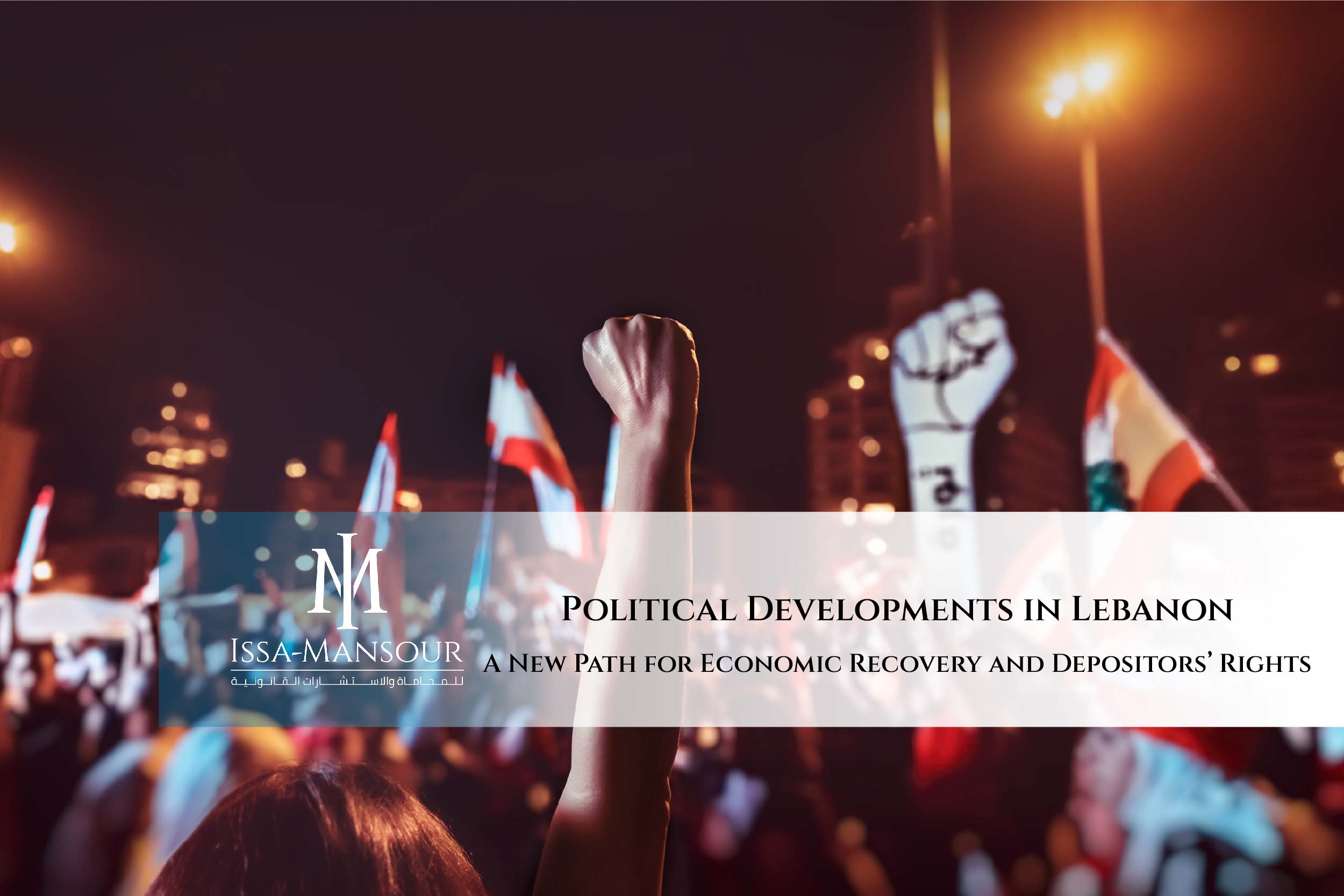Lebanon has endured one of the most severe financial and economic crises in modern history—so profound that international analysts have ranked it among the worst globally. The reasons behind this collapse are well-documented, as are its devastating effects on society, businesses, and the economy as a whole.
However, nearly six years after the crisis began, a glimmer of hope has emerged. Recent political shifts in Lebanon and the broader region have, for the first time in years, brought a sense of cautious optimism. The election of a sovereign, reform-minded President and the formation of a technocratic government have sent a positive shockwave through Lebanon’s economic and business sectors, sparking renewed confidence among citizens and investors alike.
Among the most pressing challenges facing the new leadership is resolving the long-standing legal disputes between depositors, borrowers, and banks. The issue of frozen bank deposits is not just a financial matter—it is a humanitarian and social crisis that has affected the lives of countless Lebanese. While the banking sector remains in turmoil, a balanced and just legal framework is urgently needed to protect depositors’ rights while ensuring the sector’s stability.
The time has come for a modern, practical legal solution; one that acknowledges the suffering of depositors while providing a structured path forward for Lebanon’s financial institutions. With a competent executive authority now in place, there is a real opportunity to achieve this balance.
Through our deep legal expertise in banking disputes, we remain committed to helping navigate these complex challenges. Our role is to provide guidance and advocate for fair solutions that uphold legal principles, justice, and economic sustainability. Lebanon’s financial future depends on it.
مسار جديد للتعافي الاقتصادي وحقوق المودعين
لبنان شهد واحدة من أشد الأزمات المالية والاقتصادية في التاريخ الحديث—أزمة عميقة إلى حد أن المحللين الدوليين صنفوها ضمن الأسوأ عالميًا. الأسباب الكامنة وراء هذا الانهيار موثقة جيدًا، كما أن تداعياته الكارثية على المجتمع والشركات والاقتصاد ككل واضحة للعيان.
لكن، بعد ما يقارب ست سنوات من اندلاع الأزمة، بدأ بصيص من الأمل يلوح في الأفق. التطورات السياسية الأخيرة في لبنان والمنطقة الأوسع أدخلت للمرة الأولى منذ سنوات إحساسًا بالحذر الممزوج بالتفاؤل. فقد أدى انتخاب رئيس سيادي ملتزم بالإصلاح وتشكيل حكومة تكنوقراطية إلى إحداث صدمة إيجابية في الأوساط الاقتصادية والتجارية في لبنان، مما أعاد بعض الثقة إلى المواطنين والمستثمرين على حد سواء.
من بين أكثر التحديات إلحاحًا التي تواجه القيادة الجديدة، حل النزاعات القانونية المستمرة بين المودعين والمقترضين والمصارف. مسألة الودائع المصرفية المجمدة ليست مجرد قضية مالية، بل هي أزمة إنسانية واجتماعية أثرت على حياة عدد لا يحصى من اللبنانيين. وبينما لا يزال القطاع المصرفي يعاني من الاضطرابات، أصبح من الضروري وضع إطار قانوني عادل ومتوازن يحمي حقوق المودعين ويضمن في الوقت نفسه استقرار القطاع المصرفي.
لقد حان الوقت لحل قانوني حديث وعملي—حل يعترف بمعاناة المودعين ويوفر في الوقت ذاته مسارًا منظمًا للمؤسسات المالية اللبنانية. ومع وجود سلطة تنفيذية كفؤة اليوم، هناك فرصة حقيقية لتحقيق هذا التوازن.
بفضل خبرتنا القانونية العميقة في النزاعات المصرفية، نبقى ملتزمين بمواجهة هذه التحديات المعقدة، وتقديم التوجيه والدفاع عن الحلول العادلة التي تضمن احترام المبادئ القانونية وتحقيق العدالة والاستدامة الاقتصادية. فمستقبل لبنان المالي يعتمد على ذلك.

